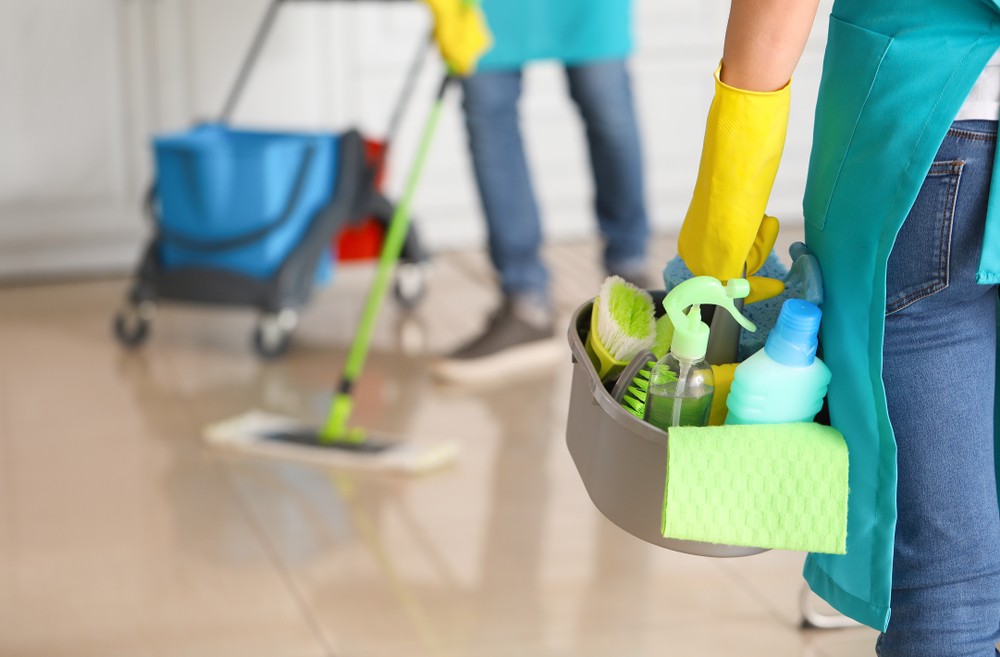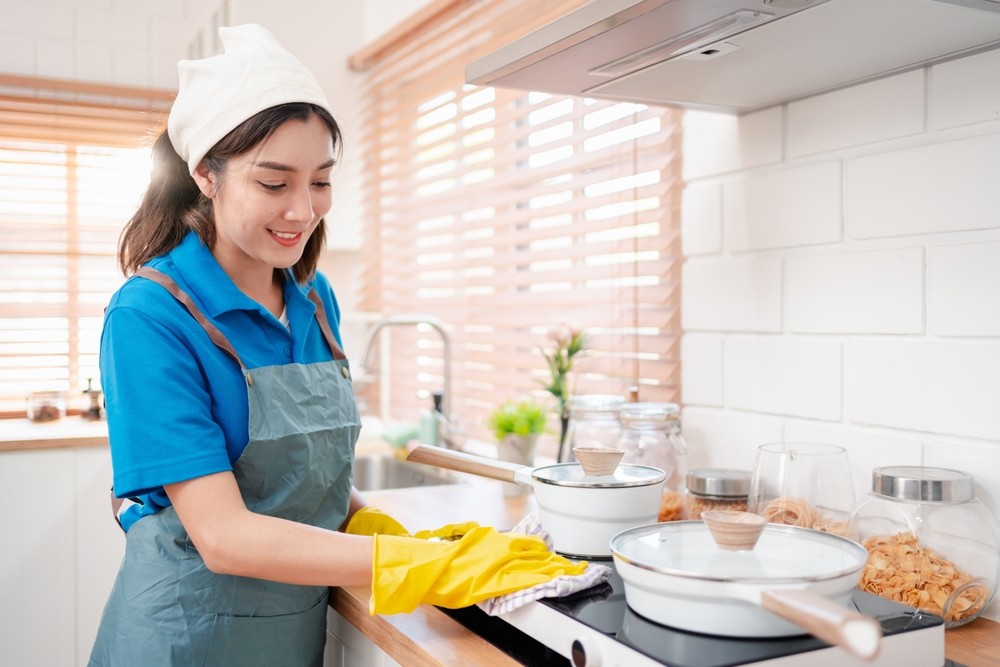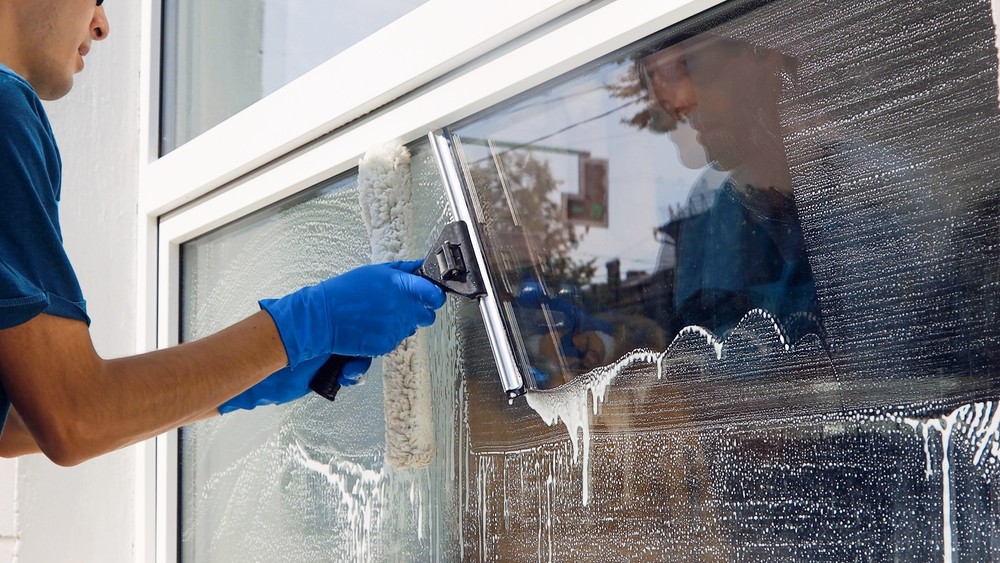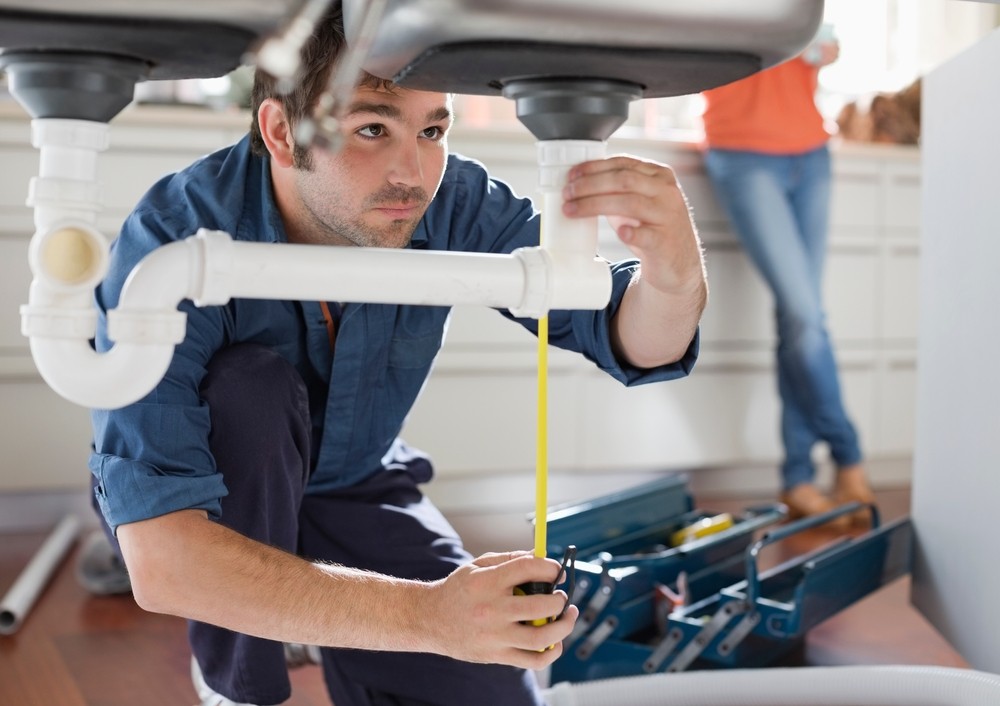
Blog
November 26, 2024
Unlocking Growth: The Ultimate Guide to Email Marketing for Cleaning Businesses

Blog
November 26, 2024
Unlocking Growth: The Ultimate Guide to Email Marketing for Cleaning Businesses
Email marketing has proven itself as a vital tool for businesses in nearly every industry, but for cleaning businesses, it’s a particularly powerful strategy. Whether you focus on residential or commercial cleaning, email campaigns can help you grow your business, improve customer loyalty, and maintain a competitive edge. This comprehensive guide will show you how to create effective email marketing campaigns that drive results.
Why Email Marketing is a Game-Changer for Cleaning Businesses
In the cleaning industry, where word of mouth and trustworthiness play significant roles, email marketing is the bridge that connects your business directly to your clients.
Cost-Effective Communication
Email marketing is among the most budget-friendly digital marketing tools. Unlike paid advertisements, which can quickly become costly, emails allow you to reach hundreds or thousands of clients with minimal investment.
Direct Engagement
Email marketing lets you engage with customers on a one-to-one level. You can share updates, promotions, and even cleaning tips directly in their inbox, building stronger relationships over time.
Building Trust and Encouraging Repeat Business
In a crowded market, retaining customers is as important as acquiring new ones. A consistent email strategy helps your cleaning business remain top-of-mind, increasing the chances of repeat bookings.
Case in Point
Consider a cleaning business that sends monthly newsletters featuring seasonal cleaning tips and exclusive discounts. Not only does this strategy provide value to readers, but it also positions the company as an expert in its field, encouraging trust and loyalty.
Understanding Your Audience: Personalization for Maximum Impact
A successful email campaign begins with knowing your audience. For cleaning businesses, your audience might include homeowners, property managers, or even office administrators.
Segmentation Strategies
Residential vs. Commercial: Segment your audience based on the type of cleaning services they need. Homeowners might respond better to tips for maintaining a clean home, while business clients might prefer insights on office hygiene.
New Customers vs. Returning Customers: Offer discounts to first-time customers and loyalty rewards to returning ones.
Collecting Data the Right Way
Encourage visitors to your website to subscribe to your email list. Use contact forms to gather details like their cleaning preferences, property type, or cleaning schedule. The more you know, the more personalized and effective your emails will be.
Example
A property manager receives an automated email thanking them for their first booking and offering 10% off their next service. This personal touch increases the likelihood of re-engagement.
Crafting Winning Email Campaigns: Tips and Best Practices
Creating an impactful email campaign requires more than just sending out promotional messages. Let’s dive into what makes a campaign stand out.
Subject Lines That Spark Interest
A subject line is your first impression. Use concise and intriguing language that encourages readers to open your email.
Examples: “Say Goodbye to Dust: Exclusive Offer Inside!” or “Your Clean Office Awaits – Book Today.”
Content that Adds Value
Your emails should be a mix of promotional content and valuable information. Sharing cleaning tips, seasonal advice, or testimonials helps establish credibility.
Clear and Compelling CTAs
Every email should have a clear purpose. Whether it’s to book a cleaning, claim a discount, or read a blog post, include a single, prominent call-to-action button.
Design Matters
Use engaging visuals and easy-to-read layouts. Tools like Canva or Mailchimp templates can help you create aesthetically pleasing emails without the need for a designer.
Metrics that Matter: Evaluating the Success of Your Email Campaigns
Measuring the effectiveness of your campaigns is crucial to long-term success.
Track Essential Metrics
Open Rate: The percentage of recipients who open your email. A low open rate could indicate issues with your subject lines or audience targeting.
Click-Through Rate (CTR): Shows how many readers clicked on your links. This indicates the relevance and engagement level of your content.
Conversion Rate: Tracks the number of recipients who completed the desired action, like booking a service or redeeming a discount.
Using Analytics Tools
Platforms like Mailchimp, Constant Contact, or HubSpot allow you to monitor these metrics and gain insights into user behavior.
Iterate and Improve
Use A/B testing to determine what works best for your audience. For example, test different subject lines or email formats to see what drives the most engagement.
Email Types to Maximize Engagement
A robust email marketing strategy includes various email types to keep your audience engaged:
Welcome Emails: Greet new subscribers with a friendly message and a special offer.
Promotional Emails: Share discounts for seasonal cleanings or bundle offers.
Educational Emails: Provide tips on maintaining cleanliness or the benefits of professional cleaning.
Customer Appreciation Emails: Thank loyal clients with exclusive deals or early access to new services.
Re-Engagement Emails: Reach out to inactive customers with reminders or special incentives to book again.
Conclusion
Email marketing is a proven and cost-effective way to grow your cleaning business. By understanding your audience, crafting valuable and engaging campaigns, and using analytics to refine your strategy, you can foster lasting customer relationships and boost bookings. Start small, focus on quality over quantity, and watch your business thrive with email marketing!
FAQs: Top Questions About Email Marketing for Cleaning Businesses
What is the best frequency for sending emails to cleaning clients?
Aim for 1-2 emails per month to stay consistent without overwhelming your subscribers.
How can I ensure my emails don’t end up in spam folders?
Use verified email services, avoid spammy language, and include an easy-to-find unsubscribe link.
Is email marketing suitable for small cleaning businesses?
Absolutely! Even small businesses benefit from direct communication and increased customer retention.
How do I create professional emails without hiring a designer?
Platforms like Mailchimp offer user-friendly templates that let you design emails with no prior experience.
What’s the key to writing a good subject line?
Be clear, concise, and use language that sparks curiosity or highlights a benefit, such as discounts or tips.
Why Email Marketing is a Game-Changer for Cleaning Businesses
In the cleaning industry, where word of mouth and trustworthiness play significant roles, email marketing is the bridge that connects your business directly to your clients.
Cost-Effective Communication
Email marketing is among the most budget-friendly digital marketing tools. Unlike paid advertisements, which can quickly become costly, emails allow you to reach hundreds or thousands of clients with minimal investment.
Direct Engagement
Email marketing lets you engage with customers on a one-to-one level. You can share updates, promotions, and even cleaning tips directly in their inbox, building stronger relationships over time.
Building Trust and Encouraging Repeat Business
In a crowded market, retaining customers is as important as acquiring new ones. A consistent email strategy helps your cleaning business remain top-of-mind, increasing the chances of repeat bookings.
Case in Point
Consider a cleaning business that sends monthly newsletters featuring seasonal cleaning tips and exclusive discounts. Not only does this strategy provide value to readers, but it also positions the company as an expert in its field, encouraging trust and loyalty.
Understanding Your Audience: Personalization for Maximum Impact
A successful email campaign begins with knowing your audience. For cleaning businesses, your audience might include homeowners, property managers, or even office administrators.
Segmentation Strategies
Residential vs. Commercial: Segment your audience based on the type of cleaning services they need. Homeowners might respond better to tips for maintaining a clean home, while business clients might prefer insights on office hygiene.
New Customers vs. Returning Customers: Offer discounts to first-time customers and loyalty rewards to returning ones.
Collecting Data the Right Way
Encourage visitors to your website to subscribe to your email list. Use contact forms to gather details like their cleaning preferences, property type, or cleaning schedule. The more you know, the more personalized and effective your emails will be.
Example
A property manager receives an automated email thanking them for their first booking and offering 10% off their next service. This personal touch increases the likelihood of re-engagement.
Crafting Winning Email Campaigns: Tips and Best Practices
Creating an impactful email campaign requires more than just sending out promotional messages. Let’s dive into what makes a campaign stand out.
Subject Lines That Spark Interest
A subject line is your first impression. Use concise and intriguing language that encourages readers to open your email.
Examples: “Say Goodbye to Dust: Exclusive Offer Inside!” or “Your Clean Office Awaits – Book Today.”
Content that Adds Value
Your emails should be a mix of promotional content and valuable information. Sharing cleaning tips, seasonal advice, or testimonials helps establish credibility.
Clear and Compelling CTAs
Every email should have a clear purpose. Whether it’s to book a cleaning, claim a discount, or read a blog post, include a single, prominent call-to-action button.
Design Matters
Use engaging visuals and easy-to-read layouts. Tools like Canva or Mailchimp templates can help you create aesthetically pleasing emails without the need for a designer.
Metrics that Matter: Evaluating the Success of Your Email Campaigns
Measuring the effectiveness of your campaigns is crucial to long-term success.
Track Essential Metrics
Open Rate: The percentage of recipients who open your email. A low open rate could indicate issues with your subject lines or audience targeting.
Click-Through Rate (CTR): Shows how many readers clicked on your links. This indicates the relevance and engagement level of your content.
Conversion Rate: Tracks the number of recipients who completed the desired action, like booking a service or redeeming a discount.
Using Analytics Tools
Platforms like Mailchimp, Constant Contact, or HubSpot allow you to monitor these metrics and gain insights into user behavior.
Iterate and Improve
Use A/B testing to determine what works best for your audience. For example, test different subject lines or email formats to see what drives the most engagement.
Email Types to Maximize Engagement
A robust email marketing strategy includes various email types to keep your audience engaged:
Welcome Emails: Greet new subscribers with a friendly message and a special offer.
Promotional Emails: Share discounts for seasonal cleanings or bundle offers.
Educational Emails: Provide tips on maintaining cleanliness or the benefits of professional cleaning.
Customer Appreciation Emails: Thank loyal clients with exclusive deals or early access to new services.
Re-Engagement Emails: Reach out to inactive customers with reminders or special incentives to book again.
Conclusion
Email marketing is a proven and cost-effective way to grow your cleaning business. By understanding your audience, crafting valuable and engaging campaigns, and using analytics to refine your strategy, you can foster lasting customer relationships and boost bookings. Start small, focus on quality over quantity, and watch your business thrive with email marketing!
FAQs: Top Questions About Email Marketing for Cleaning Businesses
What is the best frequency for sending emails to cleaning clients?
Aim for 1-2 emails per month to stay consistent without overwhelming your subscribers.
How can I ensure my emails don’t end up in spam folders?
Use verified email services, avoid spammy language, and include an easy-to-find unsubscribe link.
Is email marketing suitable for small cleaning businesses?
Absolutely! Even small businesses benefit from direct communication and increased customer retention.
How do I create professional emails without hiring a designer?
Platforms like Mailchimp offer user-friendly templates that let you design emails with no prior experience.
What’s the key to writing a good subject line?
Be clear, concise, and use language that sparks curiosity or highlights a benefit, such as discounts or tips.


Email marketing has proven itself as a vital tool for businesses in nearly every industry, but for cleaning businesses, it’s a particularly powerful strategy. Whether you focus on residential or commercial cleaning, email campaigns can help you grow your business, improve customer loyalty, and maintain a competitive edge. This comprehensive guide will show you how to create effective email marketing campaigns that drive results.
Why Email Marketing is a Game-Changer for Cleaning Businesses
In the cleaning industry, where word of mouth and trustworthiness play significant roles, email marketing is the bridge that connects your business directly to your clients.
Cost-Effective Communication
Email marketing is among the most budget-friendly digital marketing tools. Unlike paid advertisements, which can quickly become costly, emails allow you to reach hundreds or thousands of clients with minimal investment.
Direct Engagement
Email marketing lets you engage with customers on a one-to-one level. You can share updates, promotions, and even cleaning tips directly in their inbox, building stronger relationships over time.
Building Trust and Encouraging Repeat Business
In a crowded market, retaining customers is as important as acquiring new ones. A consistent email strategy helps your cleaning business remain top-of-mind, increasing the chances of repeat bookings.
Case in Point
Consider a cleaning business that sends monthly newsletters featuring seasonal cleaning tips and exclusive discounts. Not only does this strategy provide value to readers, but it also positions the company as an expert in its field, encouraging trust and loyalty.
Understanding Your Audience: Personalization for Maximum Impact
A successful email campaign begins with knowing your audience. For cleaning businesses, your audience might include homeowners, property managers, or even office administrators.
Segmentation Strategies
Residential vs. Commercial: Segment your audience based on the type of cleaning services they need. Homeowners might respond better to tips for maintaining a clean home, while business clients might prefer insights on office hygiene.
New Customers vs. Returning Customers: Offer discounts to first-time customers and loyalty rewards to returning ones.
Collecting Data the Right Way
Encourage visitors to your website to subscribe to your email list. Use contact forms to gather details like their cleaning preferences, property type, or cleaning schedule. The more you know, the more personalized and effective your emails will be.
Example
A property manager receives an automated email thanking them for their first booking and offering 10% off their next service. This personal touch increases the likelihood of re-engagement.
Crafting Winning Email Campaigns: Tips and Best Practices
Creating an impactful email campaign requires more than just sending out promotional messages. Let’s dive into what makes a campaign stand out.
Subject Lines That Spark Interest
A subject line is your first impression. Use concise and intriguing language that encourages readers to open your email.
Examples: “Say Goodbye to Dust: Exclusive Offer Inside!” or “Your Clean Office Awaits – Book Today.”
Content that Adds Value
Your emails should be a mix of promotional content and valuable information. Sharing cleaning tips, seasonal advice, or testimonials helps establish credibility.
Clear and Compelling CTAs
Every email should have a clear purpose. Whether it’s to book a cleaning, claim a discount, or read a blog post, include a single, prominent call-to-action button.
Design Matters
Use engaging visuals and easy-to-read layouts. Tools like Canva or Mailchimp templates can help you create aesthetically pleasing emails without the need for a designer.
Metrics that Matter: Evaluating the Success of Your Email Campaigns
Measuring the effectiveness of your campaigns is crucial to long-term success.
Track Essential Metrics
Open Rate: The percentage of recipients who open your email. A low open rate could indicate issues with your subject lines or audience targeting.
Click-Through Rate (CTR): Shows how many readers clicked on your links. This indicates the relevance and engagement level of your content.
Conversion Rate: Tracks the number of recipients who completed the desired action, like booking a service or redeeming a discount.
Using Analytics Tools
Platforms like Mailchimp, Constant Contact, or HubSpot allow you to monitor these metrics and gain insights into user behavior.
Iterate and Improve
Use A/B testing to determine what works best for your audience. For example, test different subject lines or email formats to see what drives the most engagement.
Email Types to Maximize Engagement
A robust email marketing strategy includes various email types to keep your audience engaged:
Welcome Emails: Greet new subscribers with a friendly message and a special offer.
Promotional Emails: Share discounts for seasonal cleanings or bundle offers.
Educational Emails: Provide tips on maintaining cleanliness or the benefits of professional cleaning.
Customer Appreciation Emails: Thank loyal clients with exclusive deals or early access to new services.
Re-Engagement Emails: Reach out to inactive customers with reminders or special incentives to book again.
Conclusion
Email marketing is a proven and cost-effective way to grow your cleaning business. By understanding your audience, crafting valuable and engaging campaigns, and using analytics to refine your strategy, you can foster lasting customer relationships and boost bookings. Start small, focus on quality over quantity, and watch your business thrive with email marketing!
FAQs: Top Questions About Email Marketing for Cleaning Businesses
What is the best frequency for sending emails to cleaning clients?
Aim for 1-2 emails per month to stay consistent without overwhelming your subscribers.
How can I ensure my emails don’t end up in spam folders?
Use verified email services, avoid spammy language, and include an easy-to-find unsubscribe link.
Is email marketing suitable for small cleaning businesses?
Absolutely! Even small businesses benefit from direct communication and increased customer retention.
How do I create professional emails without hiring a designer?
Platforms like Mailchimp offer user-friendly templates that let you design emails with no prior experience.
What’s the key to writing a good subject line?
Be clear, concise, and use language that sparks curiosity or highlights a benefit, such as discounts or tips.


Other Blogs
Other Blogs
Check our other project Blogs with useful insight and information for your businesses
Other Blogs
Other Blogs
Check our other project Blogs with useful insight and information for your businesses
Other Blogs
Other Blogs
Check our other project Blogs with useful insight and information for your businesses


